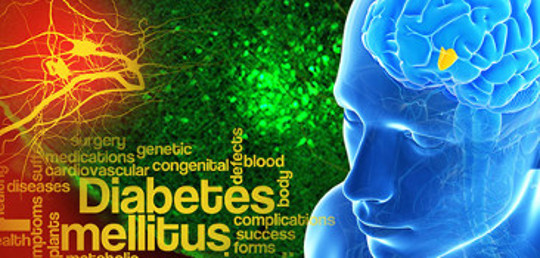
Scientists have linked a mechanism in the brain that senses glucose levels in the blood and kick starts the body’s insulin response to both type 1 and type 2 diabetes.
“We’ve discovered that the prolyl endopeptidase enzyme—located in a part of the hypothalamus known as the ventromedial nucleus—sets a series of steps in motion that control glucose levels in the blood,” says Yale School of Medicine professor and lead author Sabrina Diano. “Our findings could eventually lead to new treatments for diabetes.”
The ventromedial nucleus contains cells that are glucose sensors. To understand the role of prolyl endopeptidase in this part of the brain, the team used mice that were genetically engineered with low levels of this enzyme. They found that in absence of this enzyme, mice had high levels of glucose in the blood and became diabetic.
Diano, a professor in the departments of obstetrics, gynecology, and reproductive sciences, and her team discovered that this enzyme is important because it makes the neurons in this part of the brain sensitive to glucose.
Get The Latest By Email
The neurons sense the increase in glucose levels and then tell the pancreas to release insulin, which is the hormone that maintains a steady level of glucose in the blood, preventing diabetes. The findings are published in the Proceedings of the National Academies of Sciences.
“Because of the low levels of endopeptidase, the neurons were no longer sensitive to increased glucose levels and could not control the release of insulin from the pancreas, and the mice developed diabetes.” says Diano, who is also a member of the Yale Program in Integrative Cell Signaling and Neurobiology of Metabolism.
Diano says the next step in this research is to identify the targets of this enzyme by understanding how the enzyme makes the neurons sense changes in glucose levels. “If we succeed in doing this, we could be able to regulate the secretion of insulin, and be able to prevent and treat type 2 diabetes,” she says.
The National Institutes of Health, and the American Diabetes Association supported the research.
Source: Yale University
Original Study







